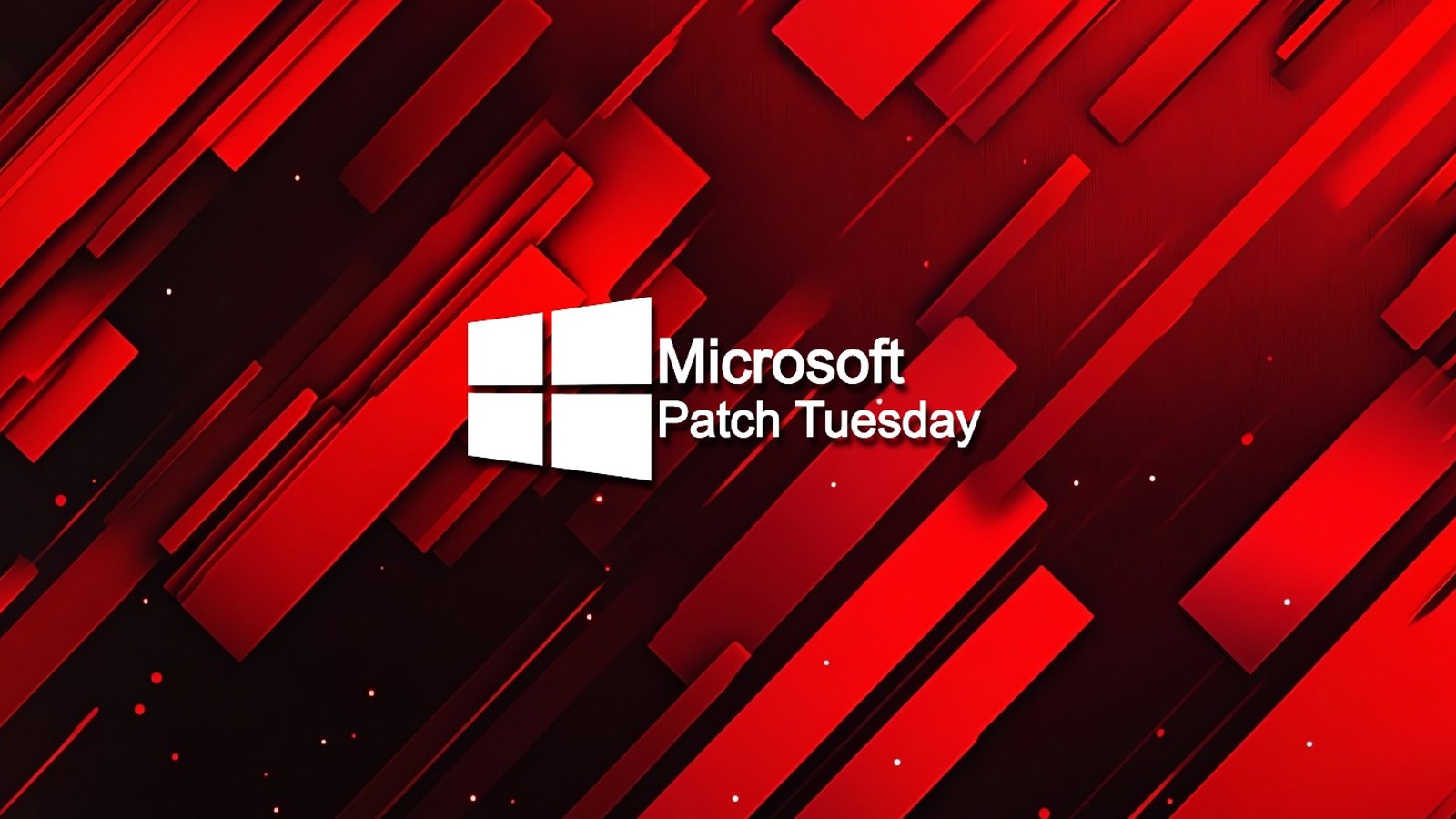
Today is Microsoft's June 2025 Patch Tuesday, which includes security updates for 66 flaws, including one actively exploited vulnerability and another that was publicly disclosed.
This Patch Tuesday also fixes ten "Critical" vulnerabilities, eight being remote code execution vulnerabilities and two being elevation of privileges bugs.
The number of bugs in each vulnerability category is listed below:
- 13 Elevation of Privilege Vulnerabilities
- 3 Security Feature Bypass Vulnerabilities
- 25 Remote Code Execution Vulnerabilities
- 17 Information Disclosure Vulnerabilities
- 6 Denial of Service Vulnerabilities
- 2 Spoofing Vulnerabilities
This count does not include Mariner, Microsoft Edge, and Power Automate flaws fixed earlier this month.
Two zero-days
This month's Patch Tuesday fixes one actively exploited zero-day and one publicly disclosed vulnerability. Microsoft classifies a zero-day flaw as publicly disclosed or actively exploited while no official fix is available.
The actively exploited zero-day vulnerability in today's updates is:
CVE-2025-33053 - Web Distributed Authoring and Versioning (WEBDAV) Remote Code Execution Vulnerability
Microsoft fixed a remote code execution vulnerability discovered by Check Point Research
"A remote code execution vulnerability exists in Microsoft Windows Web Distributed Authoring and Versioning. Successful exploitation of this vulnerability could allow a remote attacker to execute arbitrary code on the affected system," reads a Check Point Research advisory.
Microsoft's advisory further states that a user must click on a specially crafted WebDav URL for the flaw to be exploited.
While Microsoft says that the vulnerability has been exploited in attacks, no further details have been shared. BleepingComputer contacted Check Point to learn more about how the flaw was used in attacks.
Microsoft attributes the discovery of this flaw to Alexandra Gofman and David Driker (Check Point Research).
The publicly disclosed zero-day is:
CVE-2025-33073 - Windows SMB Client Elevation of Privilege Vulnerability
Microsoft fixes a flaw in Windows SMB that allows attackers to gain SYSTEM privileges on vulnerable devices.
"Improper access control in Windows SMB allows an authorized attacker to elevate privileges over a network," explains Microsoft.
"To exploit this vulnerability, an attacker could execute a specially crafted malicious script to coerce the victim machine to connect back to the attack system using SMB and authenticate. This could result in elevation of privilege," further explains Microsoft.
Microsoft has not shared how the flaw was publicly disclosed. However, Born City reports that DFN-CERT (Computer Emergency Response Team of the German Research Network) began circulating warnings from RedTeam Pentesting about the flaw this week.
While an update is now available, the flaw can reportedly be mitigated by enforcing server-side SMB signing via Group Policy.
Microsoft attributes the discovery of this flaw to multiple researchers, including Keisuke Hirata with CrowdStrike, Synacktiv research with Synacktiv, Stefan Walter with SySS GmbH, RedTeam Pentesting GmbH, and James Forshaw of Google Project Zero.
Recent updates from other companies
Other vendors who released updates or advisories in June 2025 include:
- Adobe released security updates for InCopy, Experience Manager, Commerce, InDesign, Substance 3D Sampler, Acrobat Reader, and Substance 3D Painter.
- Cisco released patches for three vulnerabilities with public exploit code in its Identity Services Engine (ISE) and Customer Collaboration Platform (CCP) products.
- Fortinet released security updates for an OS command ('OS Command Injection') vulnerability in FortiManager, FortiAnalyzer & FortiAnalyzer-BigData products.
- Google's June 2025 security updates for Android fix numerous vulnerabilities. Google also fixed an actively exploited Google Chrome zero-day flaw.
- Hewlett Packard Enterprise (HPE) issued security updates to fix eight vulnerabilities impacting StoreOnce,
- Ivanti released security updates to fix three high-severity hardcoded key vulnerabilities in Workspace Control (IWC).
- Qualcomm released security updates for three zero-day vulnerabilities in the Adreno Graphics Processing Unit (GPU) driver that are exploited in targeted attacks.
- Roundcube released security updates for a critical remote code execution (RCE) flaw with a public exploit that is now exploited in attacks.
- SAP releases security updates for multiple products, including a critical missing authorization check in SAP NetWeaver Application Server for ABAP.
The June 2025 Patch Tuesday Security Updates
Below is the complete list of resolved vulnerabilities in the June 2025 Patch Tuesday updates.
To access the full description of each vulnerability and the systems it affects, you can view the full report here.
| .NET and Visual Studio | CVE-2025-30399 | .NET and Visual Studio Remote Code Execution Vulnerability | Important |
| App Control for Business (WDAC) | CVE-2025-33069 | Windows App Control for Business Security Feature Bypass Vulnerability | Important |
| Microsoft AutoUpdate (MAU) | CVE-2025-47968 | Microsoft AutoUpdate (MAU) Elevation of Privilege Vulnerability | Important |
| Microsoft Local Security Authority Server (lsasrv) | CVE-2025-33056 | Windows Local Security Authority (LSA) Denial of Service Vulnerability | Important |
| Microsoft Office | CVE-2025-47164 | Microsoft Office Remote Code Execution Vulnerability | Critical |
| Microsoft Office | CVE-2025-47167 | Microsoft Office Remote Code Execution Vulnerability | Critical |
| Microsoft Office | CVE-2025-47162 | Microsoft Office Remote Code Execution Vulnerability | Critical |
| Microsoft Office | CVE-2025-47173 | Microsoft Office Remote Code Execution Vulnerability | Important |
| Microsoft Office | CVE-2025-47953 | Microsoft Office Remote Code Execution Vulnerability | Critical |
| Microsoft Office Excel | CVE-2025-47165 | Microsoft Excel Remote Code Execution Vulnerability | Important |
| Microsoft Office Excel | CVE-2025-47174 | Microsoft Excel Remote Code Execution Vulnerability | Important |
| Microsoft Office Outlook | CVE-2025-47171 | Microsoft Outlook Remote Code Execution Vulnerability | Important |
| Microsoft Office Outlook | CVE-2025-47176 | Microsoft Outlook Remote Code Execution Vulnerability | Important |
| Microsoft Office PowerPoint | CVE-2025-47175 | Microsoft PowerPoint Remote Code Execution Vulnerability | Important |
| Microsoft Office SharePoint | CVE-2025-47172 | Microsoft SharePoint Server Remote Code Execution Vulnerability | Critical |
| Microsoft Office SharePoint | CVE-2025-47166 | Microsoft SharePoint Server Remote Code Execution Vulnerability | Important |
| Microsoft Office SharePoint | CVE-2025-47163 | Microsoft SharePoint Server Remote Code Execution Vulnerability | Important |
| Microsoft Office Word | CVE-2025-47170 | Microsoft Word Remote Code Execution Vulnerability | Important |
| Microsoft Office Word | CVE-2025-47957 | Microsoft Word Remote Code Execution Vulnerability | Important |
| Microsoft Office Word | CVE-2025-47169 | Microsoft Word Remote Code Execution Vulnerability | Important |
| Microsoft Office Word | CVE-2025-47168 | Microsoft Word Remote Code Execution Vulnerability | Important |
| Nuance Digital Engagement Platform | CVE-2025-47977 | Nuance Digital Engagement Platform Spoofing Vulnerability | Important |
| Remote Desktop Client | CVE-2025-32715 | Remote Desktop Protocol Client Information Disclosure Vulnerability | Important |
| Visual Studio | CVE-2025-47959 | Visual Studio Remote Code Execution Vulnerability | Important |
| WebDAV | CVE-2025-33053 | Web Distributed Authoring and Versioning (WEBDAV) Remote Code Execution Vulnerability | Important |
| Windows Common Log File System Driver | CVE-2025-32713 | Windows Common Log File System Driver Elevation of Privilege Vulnerability | Important |
| Windows Cryptographic Services | CVE-2025-29828 | Windows Schannel Remote Code Execution Vulnerability | Critical |
| Windows DHCP Server | CVE-2025-33050 | DHCP Server Service Denial of Service Vulnerability | Important |
| Windows DHCP Server | CVE-2025-32725 | DHCP Server Service Denial of Service Vulnerability | Important |
| Windows DWM Core Library | CVE-2025-33052 | Windows DWM Core Library Information Disclosure Vulnerability | Important |
| Windows Hello | CVE-2025-47969 | Windows Virtualization-Based Security (VBS) Information Disclosure Vulnerability | Important |
| Windows Installer | CVE-2025-33075 | Windows Installer Elevation of Privilege Vulnerability | Important |
| Windows Installer | CVE-2025-32714 | Windows Installer Elevation of Privilege Vulnerability | Important |
| Windows KDC Proxy Service (KPSSVC) | CVE-2025-33071 | Windows KDC Proxy Service (KPSSVC) Remote Code Execution Vulnerability | Critical |
| Windows Kernel | CVE-2025-33067 | Windows Task Scheduler Elevation of Privilege Vulnerability | Important |
| Windows Local Security Authority (LSA) | CVE-2025-33057 | Windows Local Security Authority (LSA) Denial of Service Vulnerability | Important |
| Windows Local Security Authority Subsystem Service (LSASS) | CVE-2025-32724 | Local Security Authority Subsystem Service (LSASS) Denial of Service Vulnerability | Important |
| Windows Media | CVE-2025-32716 | Windows Media Elevation of Privilege Vulnerability | Important |
| Windows Netlogon | CVE-2025-33070 | Windows Netlogon Elevation of Privilege Vulnerability | Critical |
| Windows Recovery Driver | CVE-2025-32721 | Windows Recovery Driver Elevation of Privilege Vulnerability | Important |
| Windows Remote Access Connection Manager | CVE-2025-47955 | Windows Remote Access Connection Manager Elevation of Privilege Vulnerability | Important |
| Windows Remote Desktop Services | CVE-2025-32710 | Windows Remote Desktop Services Remote Code Execution Vulnerability | Critical |
| Windows Routing and Remote Access Service (RRAS) | CVE-2025-33064 | Windows Routing and Remote Access Service (RRAS) Remote Code Execution Vulnerability | Important |
| Windows Routing and Remote Access Service (RRAS) | CVE-2025-33066 | Windows Routing and Remote Access Service (RRAS) Remote Code Execution Vulnerability | Important |
| Windows SDK | CVE-2025-47962 | Windows SDK Elevation of Privilege Vulnerability | Important |
| Windows Secure Boot | CVE-2025-3052 | Cert CC: CVE-2025-3052 InsydeH2O Secure Boot Bypass | Important |
| Windows Security App | CVE-2025-47956 | Windows Security App Spoofing Vulnerability | Important |
| Windows Shell | CVE-2025-47160 | Windows Shortcut Files Security Feature Bypass Vulnerability | Important |
| Windows SMB | CVE-2025-33073 | Windows SMB Client Elevation of Privilege Vulnerability | Important |
| Windows SMB | CVE-2025-32718 | Windows SMB Client Elevation of Privilege Vulnerability | Important |
| Windows Standards-Based Storage Management Service | CVE-2025-33068 | Windows Standards-Based Storage Management Service Denial of Service Vulnerability | Important |
| Windows Storage Management Provider | CVE-2025-32719 | Windows Storage Management Provider Information Disclosure Vulnerability | Important |
| Windows Storage Management Provider | CVE-2025-24065 | Windows Storage Management Provider Information Disclosure Vulnerability | Important |
| Windows Storage Management Provider | CVE-2025-24068 | Windows Storage Management Provider Information Disclosure Vulnerability | Important |
| Windows Storage Management Provider | CVE-2025-33055 | Windows Storage Management Provider Information Disclosure Vulnerability | Important |
| Windows Storage Management Provider | CVE-2025-24069 | Windows Storage Management Provider Information Disclosure Vulnerability | Important |
| Windows Storage Management Provider | CVE-2025-33060 | Windows Storage Management Provider Information Disclosure Vulnerability | Important |
| Windows Storage Management Provider | CVE-2025-33059 | Windows Storage Management Provider Information Disclosure Vulnerability | Important |
| Windows Storage Management Provider | CVE-2025-33062 | Windows Storage Management Provider Information Disclosure Vulnerability | Important |
| Windows Storage Management Provider | CVE-2025-33061 | Windows Storage Management Provider Information Disclosure Vulnerability | Important |
| Windows Storage Management Provider | CVE-2025-33058 | Windows Storage Management Provider Information Disclosure Vulnerability | Important |
| Windows Storage Management Provider | CVE-2025-32720 | Windows Storage Management Provider Information Disclosure Vulnerability | Important |
| Windows Storage Management Provider | CVE-2025-33065 | Windows Storage Management Provider Information Disclosure Vulnerability | Important |
| Windows Storage Management Provider | CVE-2025-33063 | Windows Storage Management Provider Information Disclosure Vulnerability | Important |
| Windows Storage Port Driver | CVE-2025-32722 | Windows Storage Port Driver Information Disclosure Vulnerability | Important |
| Windows Win32K - GRFX | CVE-2025-32712 | Win32k Elevation of Privilege Vulnerability | Important |
Why IT teams are ditching manual patch management
Patching used to mean complex scripts, long hours, and endless fire drills. Not anymore.
In this new guide, Tines breaks down how modern IT orgs are leveling up with automation. Patch faster, reduce overhead, and focus on strategic work -- no complex scripts required.
.png)
 4 months ago
21
4 months ago
21





